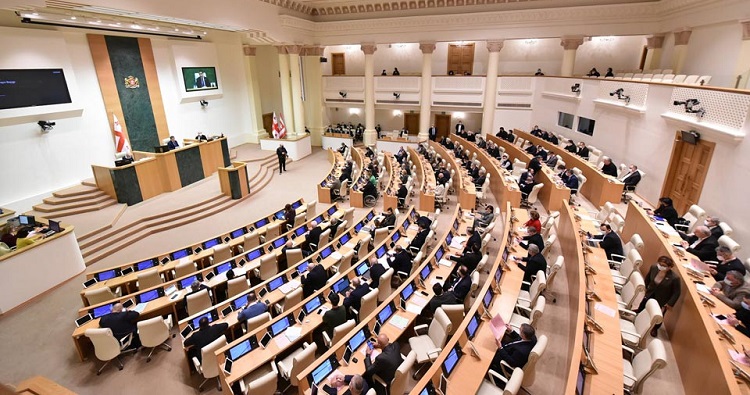Georgian Parliament’s Legal Issues Committee starts deliberations on controversial transparency bill

Anri Okhanashvili, the Chair of the Committee, on Monday called on opposition MPs to “speak with facts” regarding the bill. Photo: Parliament of Georgia
The Committee on Legal Issues of the Georgian Parliament on Monday started discussing the controversial domestic bill on transparency of foreign influence, which calls for registration of non-commercial legal entities and media outlets in the country as “pursuing the interests of a foreign power” if they derive more than 20 percent of their funding from abroad.
Davit Matikashvili, an MP from the ruling Georgian Dream party and the First Deputy Chair of the Committee, on Monday rejected the bill's branding by its domestic opposition as a “Russian law” in reference to a similar legislation in the country.
There is no Russian law. There is no need to retract anything. This is European legislation, it is only about transparency and nothing more”, Matikashvili said.
Anri Okhanashvili, the Chair of the Committee, on Monday called on opposition MPs to “speak with facts” regarding the bill.
“I do not know [any] Russian law that we have to discuss here today. There is no such bill. If you want to specify something, please speak with facts”, Okhanashvili told lawmakers.
MPs of the parliamentary opposition have demanded a retraction of the bill and called on citizens to protest against the piece of legislation.
It is a matter of principle that people should come out and protect the free and Euro-Atlantic future of this country”, Zurab Japaridze, the leader of the opposition Girchi - More Freedom party, said.
Domestic non-governmental organisations and part of media outlets are holding a protest rally outside the Parliament during the Committee's deliberations.
The draft law, reintroduced after its original version was retracted following protests last year, has also been criticised by some of Georgia's foreign partner states and diplomatic representations.
 Tweet
Tweet  Share
Share